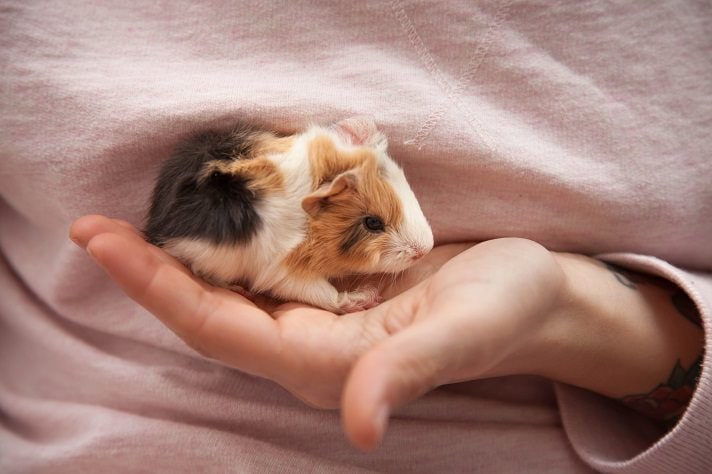
Guinea Pig Babies: A Comprehensive Guide to Care
Guinea pigs, also known as cavies, are beloved pets known for their affectionate nature and adorable appearance. When these furry companions welcome new additions to their family, it’s essential to provide proper care to ensure the well-being of the guinea pig babies, known as pups. This comprehensive guide will delve into every aspect of guinea pig baby care, from birth to weaning and beyond.
Birth and Early Care
Guinea pig pregnancies typically last around 68 days, and the litter size can range from one to six pups. During labor, the mother guinea pig will seek a secluded spot to give birth. It’s important to provide her with a nesting box filled with soft bedding, such as hay or shredded paper.
After birth, the pups are born fully furred and with their eyes open. They are immediately capable of walking and exploring their surroundings. However, they are highly dependent on their mother for warmth, nourishment, and protection.
Nursing and Nutrition
Guinea pig pups rely solely on their mother’s milk for the first few weeks of life. The milk is rich in nutrients and antibodies that are essential for their growth and development. The pups will nurse frequently, often every few hours.
If the mother guinea pig is unable to nurse her pups, it may be necessary to hand-feed them. This can be done using a syringe or a special feeding bottle designed for guinea pigs. The formula should be specifically formulated for guinea pigs and should be administered at the appropriate temperature.
Weaning
Guinea pig pups typically begin to wean around three to four weeks of age. This process involves gradually introducing solid foods into their diet while reducing their dependence on milk.
Start by offering small amounts of hay, fresh vegetables, and pellets. As the pups grow and develop, they will consume more solid foods and less milk. By six to eight weeks of age, they should be fully weaned.
Housing and Environment
Guinea pig pups require a safe and comfortable environment to thrive. Their cage should be spacious enough to allow them to move around freely and should be equipped with the following:
- Bedding: Soft and absorbent bedding, such as hay or shredded paper, provides warmth and comfort.
- Hiding places: Guinea pigs feel secure in enclosed spaces. Provide them with hideouts, such as tunnels or small houses.
- Food and water: Ensure constant access to fresh hay, vegetables, pellets, and water.
- Temperature: Guinea pigs prefer temperatures between 65°F and 75°F (18°C to 24°C). Avoid extreme temperatures and drafts.
Health and Hygiene
Guinea pig pups are susceptible to various health issues, so it’s crucial to monitor their well-being closely. Common health concerns include:
- Pneumonia: Keep the cage clean and avoid exposing the pups to cold or drafts.
- Diarrhea: Feed the pups a balanced diet and avoid sudden changes in their food.
- Scurvy: Ensure the pups have access to fresh vegetables rich in vitamin C.
- Parasites: Regularly check the pups for signs of parasites, such as mites or lice.
Maintain a clean cage by removing soiled bedding and disinfecting the surfaces regularly. Bathing guinea pig pups is not necessary unless they become excessively dirty.
Socialization and Handling
Guinea pigs are social animals and should be kept in pairs or groups. Introduce pups to other guinea pigs gradually and under supervision.
Handle the pups gently and frequently to socialize them. Start by holding them for short periods and gradually increase the duration as they become more comfortable. Avoid sudden movements or loud noises that may startle them.
Conclusion
Guinea pig babies require specialized care and attention to ensure their health and well-being. By providing them with proper nutrition, housing, and socialization, you can create a nurturing environment that will allow them to thrive and bring joy to your life for years to come. Remember to consult with a veterinarian for professional advice and guidance on any specific health concerns or questions you may have.
